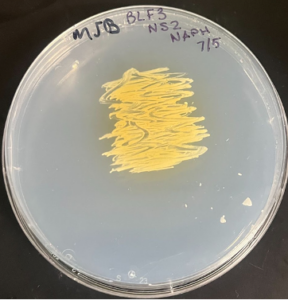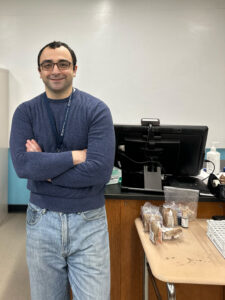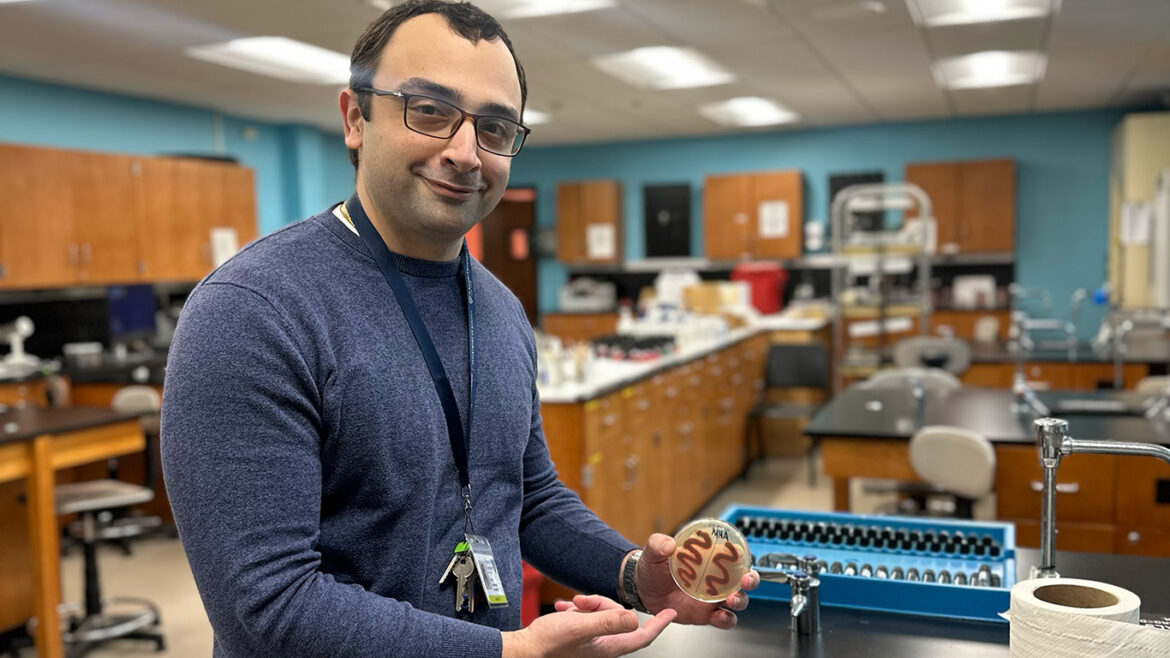When Igor Ivanovski, Ph.D., assistant professor of biology at St. Joseph’s University, New York, is not teaching students in the classroom or lab, you can find him immersed in one of his many biology-related passions. These include bioremediation, composting, fermenting and making beer and wine.
Bioremediation, or the use of microbes to clean up contaminated soil and groundwater, is a passion for Dr. Ivanovski. He often involves his student in his research, reflecting his dedication to making a positive impact on both students and the environment. He spends time collecting soil samples to remediate in an effort to stimulate the growth of certain microbes that use contaminants as a source of food and energy.
“Bioremediation is removing the chemicals that are persistent in the environment that don’t dissolve,” Dr. Ivanovski explained. “They get stuck in the food web in fats. In order to get rid of them, you must sequester them by using living things to sequester compounds from the environment that can’t break down.”

Unknown Microorganism Growing on Minimal Basal Salts Media Supplemented with Naphthalene Crystals
“We use microbes to break down the oil,” Dr. Ivanovski said. “Oil is a bunch of carbons in a long chain. Microbes chop them off one at a time and turn it into carbon dioxide, similar to how a car works.”
Currently, Dr. Ivanovski is remediating smaller scales by taking soil samples and inoculating them with ten milligrams of dioxin per gram of soil. His most recent sample was from a low elevation, about 150 meters, from the Brookhaven Landfill in Brookhaven, NY. He places the sample into a fume hood that shuffles the toxic fumes out of the room and into the atmosphere, ensuring a safe environment during his experiments.
Dr. Ivanovski joined SJNY’s Department of Biology department four years ago. Prior to his time at St. Joe’s, he taught genetics at Rutgers University. With a dynamic and engaging style of teaching, Dr. Ivanvoski aims not only to teach, but inspire a love for biology in his students.

Assistant Professor of Biology Dr. Igor Ivanovski, Ph.D.
“I really enjoy getting up and putting on a show,” said Dr. Ivanovski. “That’s the difference between hardcore teaching and professing—it’s an art that helps keep the students involved.”
In addition to his work on bioremediation, Dr. Ivanovski is involved in the Biology Club’s composting efforts. Every November, the club collects fallen leaves and combines them with food scraps—such as fruit and vegetable peels, coffee grounds and egg shells—to create nutrient-rich compost that is used to enrich the soil and support plant growth on campus.
On April 10, during common hour, the Biology Club and Green Team will use the compost they’ve made to plant new greenery around campus to illustrate how waste can be turned into something valuable for the environment. The event is open to all students.

